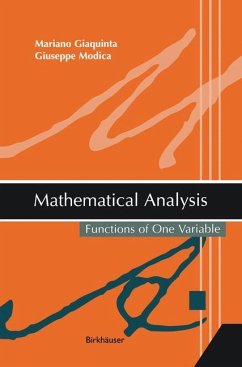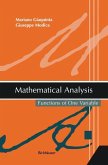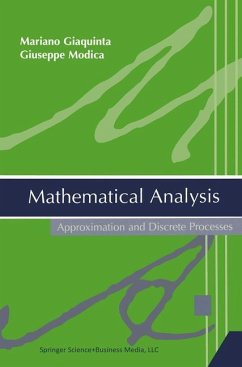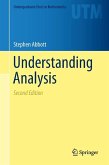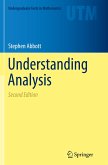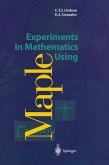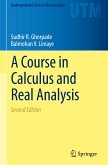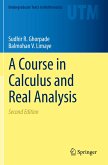This self-contained work introduces the main ideas and fundamental methods of analysis at the advanced undergraduate/graduate level. It provides the historical context out of which these concepts emerged, and aims to develop connections between analysis and other mathematical disciplines (e.g., topology and geometry) as well as physics and engineering. A rigorous exposition, numerous examples, beautiful illustrations, good problems, comprehensive bibliography, and index are some of the key features of the book. Excellent for self -study or the classroom.
For more than two thousand years some familiarity with mathematics has been regarded as an indispensable part of the intellectual equipment of every cultured person. Today the traditional place of mathematics in education is in grave danger. Unfortunately, professional representatives of mathematics share in the reponsibiIity. The teaching of mathematics has sometimes degen erated into empty drill in problem solving, which may develop formal ability but does not lead to real understanding or to greater intellectual indepen dence. Mathematical research has shown a tendency toward overspecialization and over-emphasis on abstraction. Applications and connections with other fields have been neglected . . . But . . . understanding of mathematics cannot be transmitted by painless entertainment any more than education in music can be brought by the most brilliant journalism to those who never have lis tened intensively. Actual contact with the content of living mathematics is necessary.Nevertheless technicalities and detours should be avoided, and the presentation of mathematics should be just as free from emphasis on routine as from forbidding dogmatism which refuses to disclose motive or goal and which is an unfair obstacle to honest effort. (From the preface to the first edition of What is Mathematics? by Richard Courant and Herbert Robbins, 1941.
For more than two thousand years some familiarity with mathematics has been regarded as an indispensable part of the intellectual equipment of every cultured person. Today the traditional place of mathematics in education is in grave danger. Unfortunately, professional representatives of mathematics share in the reponsibiIity. The teaching of mathematics has sometimes degen erated into empty drill in problem solving, which may develop formal ability but does not lead to real understanding or to greater intellectual indepen dence. Mathematical research has shown a tendency toward overspecialization and over-emphasis on abstraction. Applications and connections with other fields have been neglected . . . But . . . understanding of mathematics cannot be transmitted by painless entertainment any more than education in music can be brought by the most brilliant journalism to those who never have lis tened intensively. Actual contact with the content of living mathematics is necessary.Nevertheless technicalities and detours should be avoided, and the presentation of mathematics should be just as free from emphasis on routine as from forbidding dogmatism which refuses to disclose motive or goal and which is an unfair obstacle to honest effort. (From the preface to the first edition of What is Mathematics? by Richard Courant and Herbert Robbins, 1941.
From the reviews:
"Many teachers and students could benefit from thinking about its unique perspectives."
---SIAM Review
"Giaquinta . . . and Modica . . . present the differential and integral calculus for real functions of a single real variable from a sophisticated point of view. Their book is far better suited as a source of unique perspectives on the logical development of calculus ideas and their physical applications . . . [so that] it will better serve the experienced calculus instructor seeking new approaches to familiar material, or the student who has already mastered the basic ideas and techniques of calculus but wishes to see it all again, 'done right,' . . . Highly recommended."
---CHOICE
"This self-contained book introduces the main ideas and fundamental methods of mathematical analysis without loosing sight of the context in which it was developed and the role played in science, particularly in physics.... Each chapter has a short summary where the most important facts discussed are collected. There is also a large number of exercises inserted at various points into the text.... The book is meant principally for students in mathematics, physics, engineering, and computer science, but it can be used at technological and scientific faculties by anyone who wants to approach these topics."
---ZENTRALBLATT MATH
"The presentation of the theory is clearly arranged, all theorems have rigorous proofs and every chapter closes with a summing up of the results and exericeses with different requirements. The aim of the authors was very successful[ly] realized, and this book is excellently suitable for students in mathematics, physics, engineering, computer science and all students of technological and scientific faculties." ---Journal of Analysis and its Applications
"This is the first of several volumes on analysis by theseauthors. ... It is essentially a calculus book at the advanced undergraduate level, or an analysis textbook for someone who has never seen calculus before. ... I like this book ... ." (Warren Johnson, The Mathematical Association of America, October, 2009)
"Many teachers and students could benefit from thinking about its unique perspectives."
---SIAM Review
"Giaquinta . . . and Modica . . . present the differential and integral calculus for real functions of a single real variable from a sophisticated point of view. Their book is far better suited as a source of unique perspectives on the logical development of calculus ideas and their physical applications . . . [so that] it will better serve the experienced calculus instructor seeking new approaches to familiar material, or the student who has already mastered the basic ideas and techniques of calculus but wishes to see it all again, 'done right,' . . . Highly recommended."
---CHOICE
"This self-contained book introduces the main ideas and fundamental methods of mathematical analysis without loosing sight of the context in which it was developed and the role played in science, particularly in physics.... Each chapter has a short summary where the most important facts discussed are collected. There is also a large number of exercises inserted at various points into the text.... The book is meant principally for students in mathematics, physics, engineering, and computer science, but it can be used at technological and scientific faculties by anyone who wants to approach these topics."
---ZENTRALBLATT MATH
"The presentation of the theory is clearly arranged, all theorems have rigorous proofs and every chapter closes with a summing up of the results and exericeses with different requirements. The aim of the authors was very successful[ly] realized, and this book is excellently suitable for students in mathematics, physics, engineering, computer science and all students of technological and scientific faculties." ---Journal of Analysis and its Applications
"This is the first of several volumes on analysis by theseauthors. ... It is essentially a calculus book at the advanced undergraduate level, or an analysis textbook for someone who has never seen calculus before. ... I like this book ... ." (Warren Johnson, The Mathematical Association of America, October, 2009)

